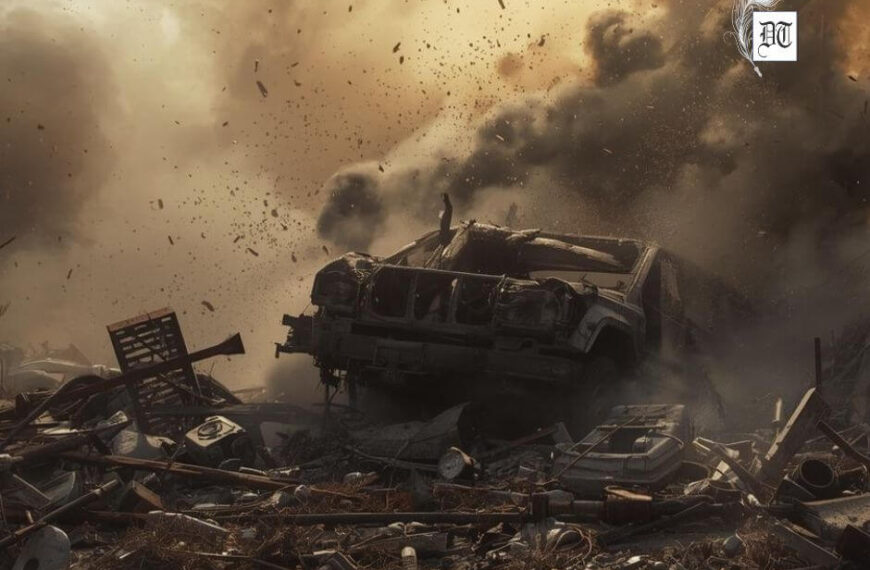An MBA and an arts graduate, Sunny Singh, as a senior bureaucrat, is the head of several crucial departments, few of which are technical departments. In the corporate sector, the Chief Executive Officer may remain preoccupied all the time to run just one company but here one bureaucrat runs seven huge departments, whose operations are spread all across the state. Hemashri profiles a typical Mr. Know-all, telling us how a bureaucrat thinks, in the weekly column. A Different Truths exclusive.

Sunny Singh is a typical capital-returned veteran Babu. He is a short and stout man in his late 50’s with a glowing, fair complexion. Half of his hair have disappeared, possibly due to the excessive heat generated by his overactive bureaucratic brain. It is very obvious that he was a handsome man in his heydays. An MBA and an arts graduate, Singh, as a senior bureaucrat, is now head of several crucial departments, few of which are technical departments. In the corporate sector, the Chief Executive Officer may remain preoccupied all the time to run just one company but here one bureaucrat runs seven huge departments, whose operations are spread all across the state.
Field officers have tough time explaining to Singh the highly technical issues but the great thing is that he knows everything about everything to give his ultimate authoritarian comment. As the head of the office, he is the Commander-in-Chief and none can dare to disagree. The only advantage here is there is only process and no product. So the ultimate responsibility of the C-i-C is to keep the process active. A pregnant woman after nine months of conceiving, delivers the baby. Here, from the point of conceiving an idea to its delivery is a long process and may take years and years yet delivery is highly uncertain. Besides, incidence of still birth and miscarriage are very high. After pumping huge amount of resources, at the fag end of an irrigation project, the net gain could be that only during flood season water would be available or lead to the ultimate discovery that the site of the project was wrongly decided. Anything absurd can happen anytime. This is great Indian bureaucracy where crucial and critical decisions are taken by people, who may not know anything about it. Indian bureaucracy is divorced from specialisation or expertise because such generalists still rule the roost.

The tip of Singh’s nose is high up in the air with anger and arrogance. Singh is busy these days, in the very important meeting for an upcoming global conclave. Many of the suggestion from the experienced experts get disapproved with Mr Singh’s “Iss state mein, naah?” (Not in this state) kind of comment. If nothing good is possible in this state then why they are organising such a mega event to lure investors is the big question. But, who has the guts to ask that. Singh is capital returned with high links. He is here only to spend the stipulated cooling off phase to be eligible to go back to the capital. With his family safely tucked away in the country’s capital, he has been shuttling in between to handle his seven departments.
In an important meeting with diaspora, Singh made it clear as to what will be the focus to lure investors. He stated, “We have 5000 qualified engineers and no industry so we can tell investors that trained technical manpower is very cheap here.” Singh was totally oblivious of the fact that such a slogan can open door for exploitative corporates and that it is violation of labour laws to pay less than the due. Singh is blissfully unaware that the engineers working with his team to make the conclave a grand success have been drawing less than minimum wages prescribed for the skilled manpower by the government. He may know everything about everything yet he does not bother to know what he must as the head of the department.
As the head of an important department, Singh placed the proposal to make the state a vibrant trade hub by constructing 65 storied twin towers. What remained a riddle was that the state falls in Zone 5, a
Yes Boss, you are right! Who has seen tomorrow but what we sow today, so shall we reap tomorrow!
©Hemashri Hazarika
Photos from the Internet
#ReapWhatYouSow #YesBoss #Bureaucrats #GovernmentOffices #GovermentGallimaufry #DifferentTruths





 By
By
 By
By
